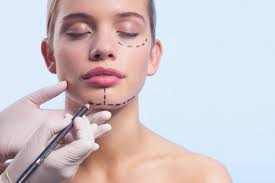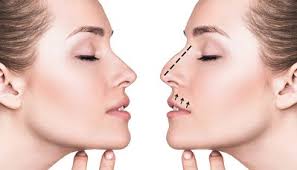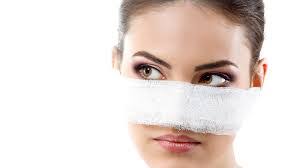How can I heal faster from plastic surgery?
Average recovery periods can be improved with proper preparation and aftercare
Cosmetic surgery can help ensure you look your best, giving you a more youthful-looking appearance, an enhanced figure, or fixing perceived imperfections. However, it’s important to remember that the healing process is an essential part of the journey to a better you. There are things you can do to promote faster healing and ensure the best results from your surgery.
Tips to help aid faster healing:
- Protect your skin from the sun – Use a broad-spectrum sunscreen with an SPF of 30 or more.
- Take pain medication if needed – It’s not necessary to be a hero, so take any prescribed pain medications. Be careful though. “It is important to avoid over-the-counter medicines that could affect blood clotting for at least two weeks after your surgery, such as aspirin, Motrin, vitamin E, or herbal medicines,” according to the Smart Beauty Guide by the American Society of Aesthetic Plastic Surgeons.
- Keep moving, but skip heavy workouts – Take short, light walks as this can reduce pain and promote healing. However, vigorous workouts should be avoided for at least 8 weeks.
- Drink lots of H2O – Water is nature’s ultimate healer after any cosmetic surgery.
- Take measures to reduce swelling – Ice packs or cold compresses can help reduce swelling. Use them regularly, especially during the first 3 days after surgery. In the case of any facial cosmetic surgery, you can also sleep with your head elevated.
- Keep your skin clean – Make sure to cleanse regularly – being careful to avoid irritating wounds – to avoid build-up in the pores, which can inhibit healing and cause breakouts.
- No smoking – Smoking is one the worst things you can do after surgery. “Nicotine causes blood vessels to constrict…decreasing the blood supply to the tissues…Tissues that are not receiving an adequate blood supply may not heal correctly, which increases the occurrence of complications,” according to the Smart Beauty Guide.

Listen to your doctor, not the internet
If you’re looking for advice on scar care after cosmetic surgery or wondering if you really need to stay out of the hot tub when you’re already 3 weeks post-op (spoiler alert: you do), you might be tempted to go by what RealSelf has to say. Don’t be: even fairly trustworthy online sources of cosmetic surgery information should not replace instructions from your own cosmetic surgeon, who knows your medical history and all the details of your actual procedure. Call your cosmetic surgeon with any concerns or questions you have, and follow the advice they provide.
Don’t take any herbs, supplements or medications without your doctor’s permission
Many normally safe products can be dangerous or inhibit healing after cosmetic surgery. For example, ibuprofen (Advil), green tea, tumeric, and other everyday anti-inflammatory substances can increase risk for bleeding after surgery. Other herbs and medications may interact with anesthesia or pain medications. Your cosmetic surgeon will give you a list of items to avoid. The general rule is to avoid “banned substances” for at least 2 weeks before surgery and 2 weeks after, but follow your surgeon’s protocol.

Take All Medication
No matter how good you may feel or how well you can tolerate pain, take your medicine as directed. Do not miss any doses of your pain medication. Pain increases your blood pressure. High blood pressure can cause more bruising and create complications with your recovery.
Don’t Lounge Around
Many of the medicines and narcotics that you have received during your surgery and are taking during your recovery can cause constipation. To prevent constipation, you need to get up and get moving. Take short walks around the house and increase your fluid intake to prevent constipation and complications.
Maintain a Healthy Diet
It is not uncommon to experience changes with your appetite after surgery. However, you need to continue to eat and maintain a healthy diet. Eat lots of protein and carbohydrates. You need to feed your body properly so that it can heal and repair itself to speed up your recovery. If you decide to take any vitamins, let your doctor know prior to taking them.

Rest
Resting after surgery – getting good sleep during your recovery after cosmetic plastic surgery
- Allow your body to heal and get good nutrition and rest.
- Recognise that rest may be difficult at first in the early stages of post-operation healing but will get better.
- A lack of comfortable sleep at first is expected and can leave you feeling emotional after surgery; questioning your decisions to have surgery is also very common.
- Know what to expect in terms of emotions and have good support around you (supportive friends and family who understand why you chose to have your procedure).
- Make your post-op room as comfortable as possible. Read Tips for at-home recovery.
How we help you with surgery recovery after plastic surgery
- We go the extra mile to ensure you are not only prepared for your surgery, but you’re prepared for your recovery period as well.
- We have a Rapid Recovery Package to help you during the initial healing and surgery recovery period.
- We provide follow-up visits as part of our service and these are included in your quote (be sure you DO book and attend all follow-up appointments are recommended including annual follow-up check ups with your Surgeon).
But it’s important you don’t rush your recovery.
- Surgery is a major event.
- You want to allow your body to heal well by giving it adequate rest and recovery time, and nurturing your body and mind during the process of plastic surgery recovery.
Nutritional tips for what to eat after surgery: greens, fruits and veggies (ask your surgeon)
- Consuming fresh fruit and vegetables and maintaining a balanced diet before and after your surgery ensures your body is receiving the vitamins and nutrients it needs to aid recovery.
- Almonds, fruit, lean meats, whole grains, yogurt and seafood are all high in vitamins E, D, C and A, iron, protein, fibre and zinc.
- Foods containing these nutrients assist in wound healing and forming scar tissue, as well as promoting growth of new blood cells.
- Immunity, bone healing and repair of soft tissue is also aided by the above vitamins and nutrients.
- Also make sure you’re drinking lots of water to keep your fluids up, aim for at least 1.5 litres per day.
- Avoid alcohol and other intoxicating substances to maximise your healing capacity.